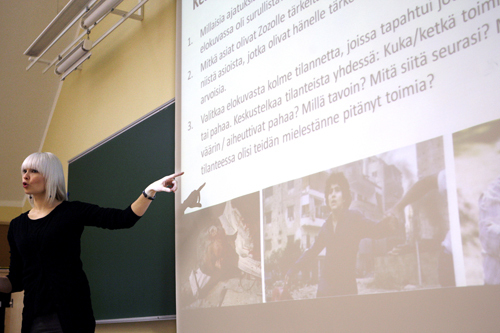
By now my followers know that I am a big fan of Finnish educator Pasi Sahlberg and his book, ο 2013 University of Louisville Grawemeyer Award winning Φινλανδικά Μαθήματα: Τι μπορεί να το Παγκόσμιο Μάθετε από εκπαιδευτικής αλλαγής στη Φινλανδία? The Harvard Graduate School of Education recently named Sahlberg a visiting professor of practice beginning January 2014.
Finland is globally recognized as a leading education system. All Finnish teachers are required to have a Masters degree and entrance into this prestigious profession is highly competitive (και μόνο 1 σε 4 applicants are accepted).
In January of this year, I asked Pasi to give me his predictions on how technology might impact Finnish teachers and classrooms 5 ή 10 χρόνια από τώρα. Pasi envisioned three scenarios as to what might happen. His first scenario: schools use technology to align all core instructional operations. While this would change classrooms, learning would remain primarily in schools supported by homework, as it is today. His second scenario is that personalized digital learning becomes the most common form of study, δηλαδή. learning could take place from any location. In this scenario schools would become places for facilitation of study and checking of achievement. Sahlberg’s third scenario would be for schools to be elevated to places for social learning and developmental skills to be nurtured. Cooperative learning, problem solving and cultivating the habits of mind would be at the heart of school life.
Ο Finnish matriculation examination (the Lukio) is the only national test that Finnish students sit. The test is given to all students at the end of their high school years. The Finnish National Board of Education has set a goal for the matriculation exam to be digital by 2016. What changes will Finnish schools and educators need to make to prepare for this?
Today I am pleased to welcome Pasi Sahlberg along with Finnish teacher and counselor, Timo Ilomaki, να Η Σφαιρική Αναζήτηση για Εκπαίδευση – Πήρε Tech? series to share their perspectives.
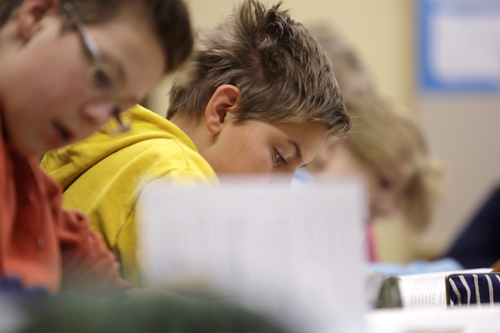
“Σε 2016, there will be a big change in our national high school exam, δηλαδή. the eExam. High schools are in the middle of education technology discussions right now. I believe it is time for students to use the same tools that they will use in their work lives.” — Timo Ilomaki
Timo, research shows higher engagement and better retention when students use technology. How has technology impacted the Finnish education system? Τι βλέπετε ως τα πλεονεκτήματα και τα μειονεκτήματα από την άποψη της μάθησης?
Ιστορικά, Finland has not been advanced in terms of using education technology in the classroom. Ωστόσο,, στο παρελθόν 2-3 years this has changed a lot. iPads and other tablets have come to Finnish schools. Σε 2016, there will be a big change in our national high school exam, δηλαδή. the eExam. High schools are in the middle of education technology discussions right now. I believe it is time for students to use the same tools that they will use in their work lives. The problem is that there are many different education technology systems being used inside the same schools.
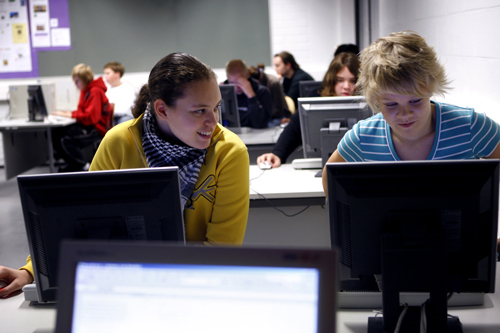
“Because of the Lukio’s importance, and the changes to this exam in 2016, teachers will have to use more tech to ensure that students get better results on the new test.” — Timo Ilomaki
Από την άποψη της μάθησης, do teachers believe technology can bring learning to a higher level? Technology claims to be able to individualize learning. Is that seen as a positive opportunity?
Timo Ilomaki: Many teachers don’t believe in technology, but rather in traditional methods. Teachers trust their professional skills, and believe that they know what they are doing, and maybe they don’t believe they need edtech to help them. Principals are the key in Finnish schools. If principals want more edtech, then there will be more edtech. Finnish high schools are already based on individual learning – every student has his/her own schedule and study plan.
Pasi Sahlberg: Today most teachers in Finland judge their teaching methods by pedagogical criteria. Με άλλα λόγια,, they ask if this or that approach to teaching will in the end help all students to learn. For most teachers, learning means to understand by making meaningful connections between what is to be learned and what already exists in students’ μυαλά. This includes the use of technology. The single most important reason to use available educational technologies in the classroom is whether it makes sense in terms of pedagogy. I am sure over time there will be more and more technology that is used in all classrooms in Finland. But I don’t think that Finnish teachers would agree with any ideas that would challenge their role as a teacher of their students. I do see that the teacher’s role is changing with the new technologies. Στη Φινλανδία, teachers are becoming more like coaches for students in their own learning given the various possibilities which technologies provide. But I also see a new expectation emerging for Finnish schools. There are an increasing number of parents in Finland who would like to see that their children have some time in school that is devoted to learning with and from people in face-to-face situations. There is renewed interest in cooperative learning, classroom discussions and individual study using books and magazines, so I believe we shall see some kind of educational renaissance soon in Finland.
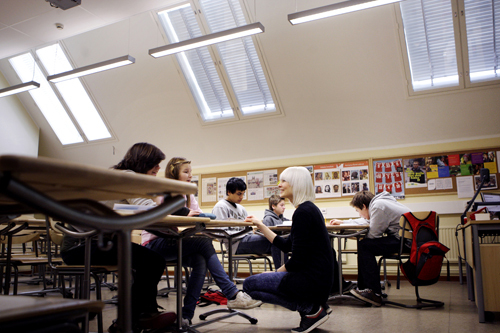
“There are an increasing number of parents in Finland who would like to see that their children have some time in school that is devoted to learning with and from people in face-to-face situations. There is renewed interest in cooperative learning, classroom discussions and individual study using books and magazines.”– Pasi Sahlberg
Ολόκληρες πολιτείες στις ΗΠΑ έχουν υιοθετήσει την ψηφιακή σχολικά βιβλία. Πανεπιστημιακές βιβλιοθήκες γίνονται αποθετήρια του ψηφιακού περιεχομένου. Many would say textbooks have already gone digital and indeed the next generation of digital content is not far behind. What digital learning tools have been implemented in Finland?
Timo Ilomaki: There are lots of iPads now in Finnish schools, and that is why there are lots of Ebooks in curriculum subjects. I think eBooks will be the next big thing here, αυτό είναι, online books, which you can use with any device.
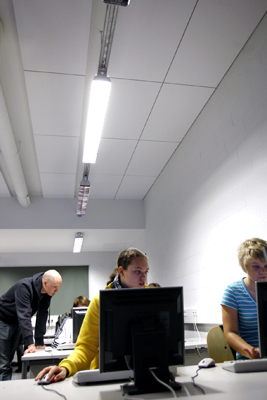
“The real revolution that technology is bringing will not happen in schools but outside of them. It will gradually take the monopoly and authority of knowledge and information from teachers and move teachers into a new role, that is to lead all students to their sources of curiosity and passion, and to discovering what they really want to be.” — Pasi Sahlberg
How do you see technology’s impact on curriculum design and the classroom generally in the run up to your new eExam?
Timo Ilomaki: Tech has always been mentioned in curriculum design but it is used less often. The new high school exam will be a big change, and curriculum will follow in its footsteps. It is the only national test in Finland and it’s given at age 18. Because of the Lukio’s importance, and the changes to this exam in 2016, teachers will have to use more tech to ensure that students get better results on the new test. Principals have no choice anymore as the exam will change things.
Pasi Sahlberg: Because curricula in Finland are designed by each individual school, edtech has a different role to play from one school to another. I think we will continue to see this diversity in Finnish schools as technology becomes a more common tool in teaching and learning. The eExam mostly affects our high schools and the assessment happening in those classrooms. Most Finnish high school students use technology as a normal tool in their studies. The new examination system will probably increase the use of technology, especially in school assessments.
Ωστόσο,, I believe the real revolution that technology is bringing will not happen in schools, but outside of them. It will gradually take the monopoly and authority of knowledge and information from teachers and move teachers into a new role that is to lead all students to their sources of curiosity and passion, and to discovering what they really want to be. I think the best way to move forward is to find a good solution to securing time for human interactions for all students in addition to giving students access to learn with new technologies. Στη Φινλανδία, one alternative is to build future learning in schools more on technologies that children bring with them to schools everyday rather than on technologies that schools can provide. Τελικά, I believe our teachers will need a new kind of professional development to support all the challenges that lie ahead.
Pasi Sahlberg is a featured author in Helen Janc Malone’s new book, Κορυφαίοι Εκπαιδευτική Αλλαγή: Παγκόσμια Ζητήματα, Προκλήσεις, και μαθήματα σχετικά με τη μεταρρύθμιση ολόκληρου Σύστημα (Παιδαγωγική Ακαδημία Τύπου, 2013): http://store.tcpress.com/0807754730.shtml

Photos courtesy of the Finnish Ministry of Education and Culture.
Για περισσότερα άρθρα στο Got Tech? σειρά: Η Σφαιρική Αναζήτηση για Εκπαίδευση: Πήρε Tech? – Καναδάς, Η Σφαιρική Αναζήτηση για Εκπαίδευση: Πήρε Tech? – Αυστραλία, Η Σφαιρική Αναζήτηση για Εκπαίδευση: Πήρε Tech? – Σιγκαπούρη, Η Σφαιρική Αναζήτηση Για την Εκπαίδευση: Πήρε Tech? – Ηνωμένες Πολιτείες, Η Σφαιρική Αναζήτηση Για την Εκπαίδευση: Πήρε Tech? ΙΒ Σχολεία σε έναν εικονικό κόσμο, Η Σφαιρική Αναζήτηση για Εκπαίδευση: Πήρε Tech? – Αργεντινή
Στο παγκόσμιο Αναζήτηση για Εκπαίδευση, μαζί μου και παγκοσμίως γνωστή ηγέτες σκέψης συμπεριλαμβανομένου του Sir Michael Κομμωτήριο (Ηνωμένο Βασίλειο), Ο Δρ. Michael Block (ΗΠΑ), Ο Δρ. Leon Botstein (ΗΠΑ), Καθηγητής Clay Christensen (ΗΠΑ), Ο Δρ. Linda Ντάρλινγκ-Hammond (ΗΠΑ), Ο Δρ. Madhav Chavan (Ινδία), Ο καθηγητής Michael Fullan (Καναδάς), Ο καθηγητής Howard Gardner (ΗΠΑ), Ο καθηγητής Andy Hargreaves (ΗΠΑ), Ο καθηγητής Yvonne Hellman (Η Ολλανδία), Ο καθηγητής Kristin Helstad (Νορβηγία), Jean Hendrickson (ΗΠΑ), Καθηγητής Rose Hipkins (Νέα Ζηλανδία), Καθηγητής Cornelia Hoogland (Καναδάς), Αξιότιμο Jeff Johnson (Καναδάς), Η κ. Chantal Kaufmann (Βέλγιο), Ο Δρ. Eija Kauppinen (Φινλανδία), Υφυπουργός Tapio Kosunen (Φινλανδία), Ο καθηγητής Dominique Λαφοντέν (Βέλγιο), Ο καθηγητής Hugh Lauder (Ηνωμένο Βασίλειο), Καθηγητής Ben Levin (Καναδάς), Lord Ken Macdonald (Ηνωμένο Βασίλειο), Καθηγητής Barry McGaw (Αυστραλία), Shiv Nadar (Ινδία), Καθηγητής R. Natarajan (Ινδία), Ο Δρ. PAK NG (Σιγκαπούρη), Ο Δρ. Denise Πάπα (ΗΠΑ), Sridhar Rajagopalan (Ινδία), Ο Δρ. Diane Ravitch (ΗΠΑ), Richard Wilson Riley (ΗΠΑ), Sir Ken Robinson (Ηνωμένο Βασίλειο), Καθηγητής Pasi Sahlberg (Φινλανδία), Καθηγητής Manabu Sato (Ιαπωνία), Andreas Schleicher (PISA, ΟΟΣΑ), Ο Δρ. Anthony Seldon (Ηνωμένο Βασίλειο), Ο Δρ. David Shaffer (ΗΠΑ), Ο Δρ. Kirsten Μοναδική Are (Νορβηγία), Στήβεν Spahn (ΗΠΑ), Yves Theze (Lycee Francais Η.Π.Α.), Ο καθηγητής Charles Ungerleider (Καναδάς), Ο καθηγητής Tony Wagner (ΗΠΑ), Sir David Watson (Ηνωμένο Βασίλειο), Καθηγητής Dylan Γουίλιαμ (Ηνωμένο Βασίλειο), Ο Δρ. Mark Wormald (Ηνωμένο Βασίλειο), Ο καθηγητής Theo Wubbels (Η Ολλανδία), Ο καθηγητής Michael Young (Ηνωμένο Βασίλειο), και ο καθηγητής Minxuan Zhang (Κίνα) καθώς εξερευνούν τα μεγάλα ζητήματα της εκπαίδευσης εικόνα που όλα τα έθνη αντιμετωπίζουν σήμερα. Η Παγκόσμια αναζήτηση για την Εκπαίδευση της Κοινότητας Σελίδα
C. M. Rubin είναι ο συγγραφέας των δύο πολυδιαβασμένα online σειρά για την οποία έλαβε ένα 2011 Βραβείο Upton Sinclair, “Η Σφαιρική Αναζήτηση για Εκπαίδευση” και “Πώς θα μας Διαβάστε?” Είναι επίσης ο συγγραφέας του μπεστ σέλερ τρία βιβλία, Συμπεριλαμβανομένων Η Ρεάλ Αλίκη στη Χώρα των Θαυμάτων.


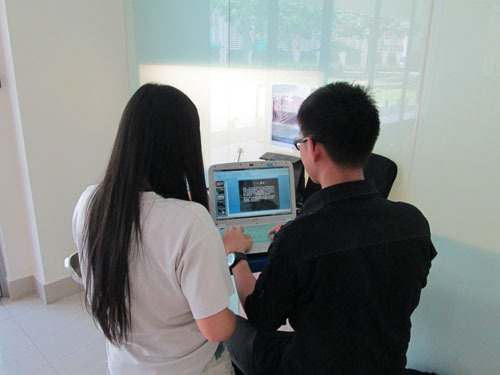
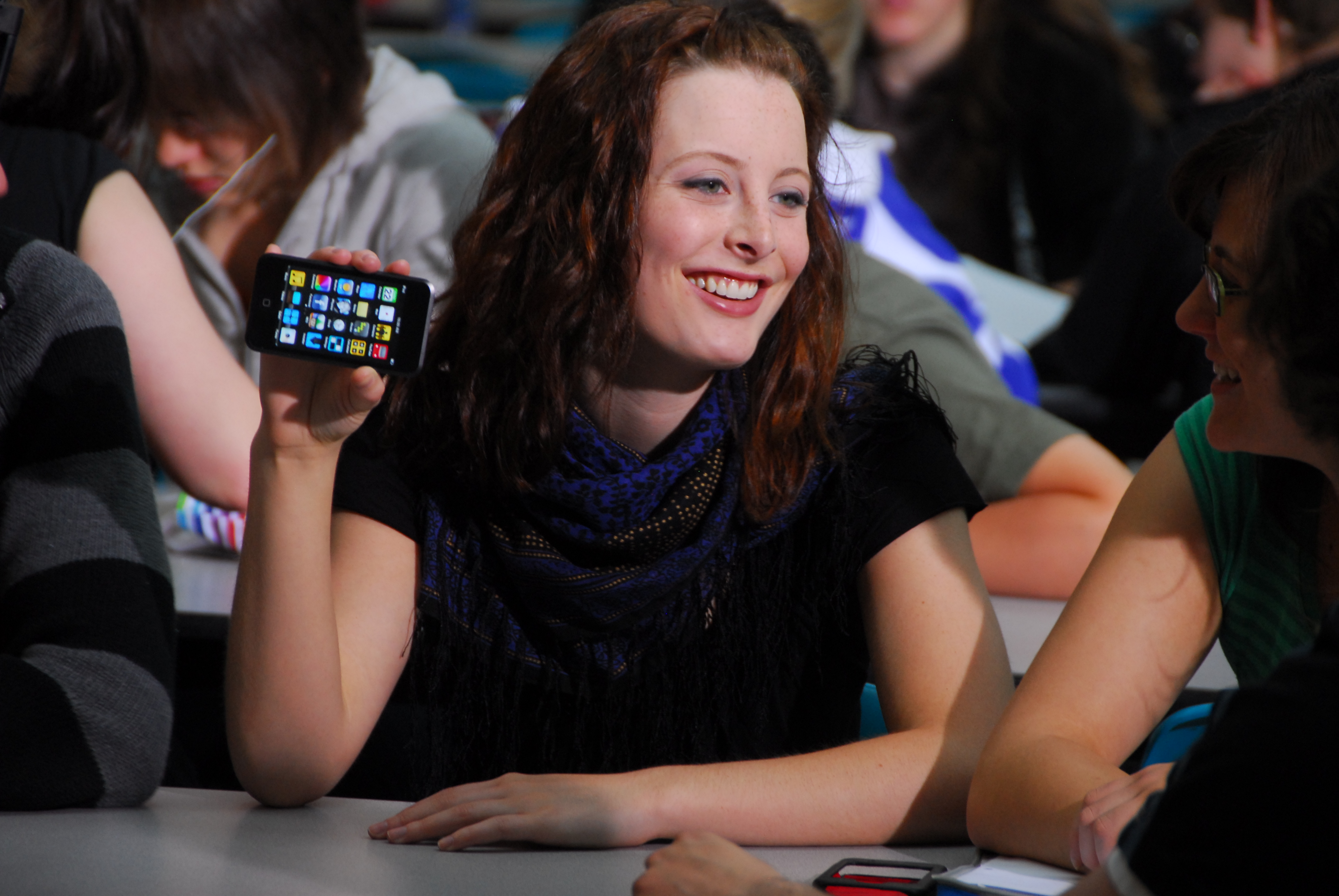
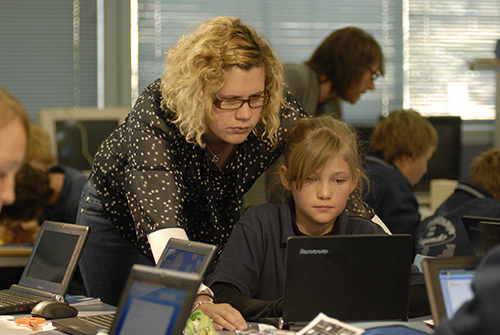
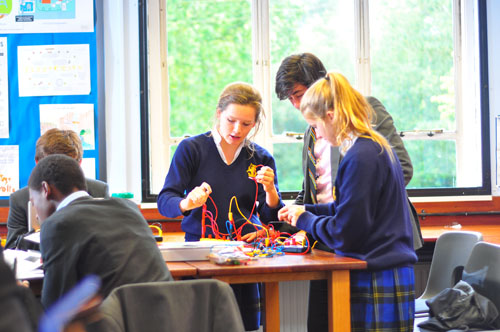
Πρόσφατα σχόλια